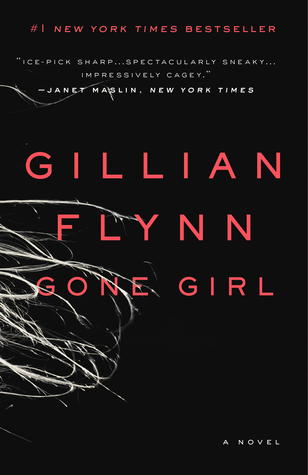
It seems silly to call spoilers on two books which were both released more than a year ago, but... spoilers. Just minor ones though.
I just finished Gone Girl by Gillian Flynn, and while I can't actually say anything against it — her narrative voice is spot-on, her characters are realistic to a wincing degree, and her plot is immaculate — it fell a bit flat for me. This post is about why, and why it's the same thing that made The Da Vinci Code a slog to get through for some people.
Let me explain.
Remember The Da Vinci Code? The plot structure wasn't unlike a Nancy Drew or Hardy Boys mystery. A protagonist with deciphering bona fides finds puzzle after puzzle, each one leading him on to the next clue. The action and danger escalated geometrically, and the solution to each puzzle provided a new twist to the plot.
Or, at least, it was supposed to. Certainly for the readers who loved the book it did. It even led to a whole related flurry of books, documentaries, and TV specials running through which conspiracies were historical and which Dan Brown had made up whole cloth.

For other readers, however, it was all very underwhelming. One of them was my brother Rob, who studied art all the way through high school. "This is all stuff we took in class," he complained. "All that stuff about Da Vinci's The Last Supper... anybody who studied any art history or has ever bothered to read up on Renaissance painters is going to know that. It's no big secret."
I never studied art, so Rob was ahead of me there, but both of us received a lot of puzzle books as children. We used to try out ciphers and send each other messages all the time. Some of the ciphers in The Da Vinci Code were the same as the ones we used to play with. I remember there was at least one chapter (the one with the mirror written message) where I knew the solution at a glance, and had to march through twenty pages of the characters asking each other, "But what could it mean?" before they finally figured it out. Other chapters I had a pretty accurate idea of what the cipher was, and had to plod through until it was deciphered in the book.
This isn't to brag, not at all. It's to point out that if your reader has knowledge pertinent to your story context, they're going to get very frustrated with your story. It's sort of a variation on the "howler" of an inaccurate detail in an otherwise realistic story. The difference is, that while a detective story may make a police officer cringe, or a medical thriller make a doctor wince, these are bits of knowledge that a non-specialist may have acquired just by liking to read. Quite probably they are members of the book's target audience.
So: Gone Girl. At the top of this post, I described the characters as realistic to a "wincing degree". The two main characters (they take turns narrating in the first person) are both narcissists, possibly sociopaths. The issue is that if you've ever had the bad luck to know such a person well — I have — it's obvious after five pages in the book what they're about. It's a credit to Flynn as a writer that she portrays them so accurately, but it means that the three big plot twists people have discussed a lot are completely predictable. As a reader, I didn't know the exact details, but I could see the fallacies in what was being narrated (narcissists are the perfect unreliable narrators) and knew reality was going to give them a hard smack long before it happened.
That meant that the reading experience was a lot "flatter" and, well, non-thrilling for me. What kept me reading was that there was a sort of perverse joy in exploring the behaviour in two people who were married to each other. All the real-life narcissists I've known have always wound up connected to non-narcissists (all the better to make the relationship and the drama they get to generate from it all about them).
What do you think? Have you ever had a book fall flat for you because you had knowledge that blew away the mystery before the plot could?